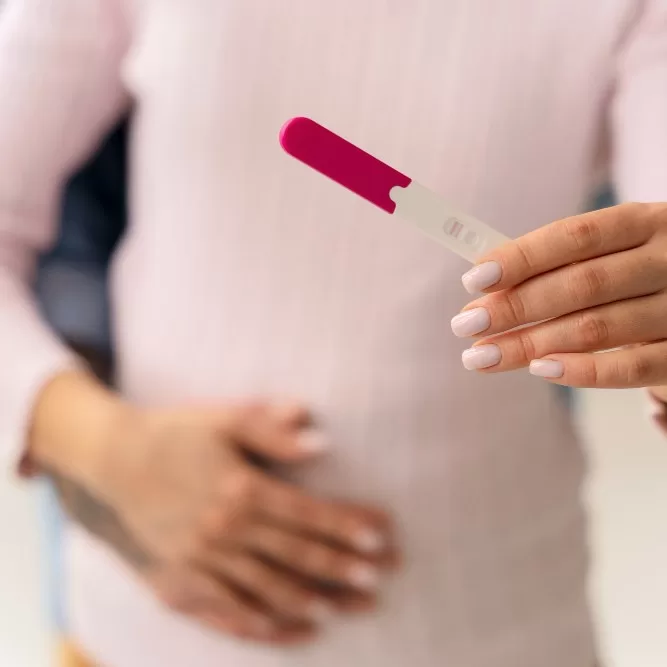Pregnancy is a special journey for every woman, as the experience of motherhood is truly beautiful. Especially for first-time mothers, the anticipation of becoming a parent brings forth numerous questions and concerns. While some women quickly recognize the early signs of pregnancy within the first few days, others may not realize they are pregnant at all.
The question arises:
When do women know they are pregnant?
Typically, most women become aware of their pregnancy when they miss their menstrual period. However, with a bit of caution, pregnancy can also be detected without a pregnancy test. There are several early signs and symptoms that can indicate whether a woman is pregnant or not.
Common Early Signs of Pregnancy:
Bleeding:
The first sign of pregnancy is often light bleeding. When the fertilized egg begins to attach to the lining of the uterus, it may cause some blood cells to shed, resulting in light bleeding. This bleeding differs from menstrual bleeding, as it is usually lighter and accompanied by mild cramping. Not all women experience this symptom, but it is considered one of the earliest signs of pregnancy.
Vaginal Discharge:
Another early sign of pregnancy is an increase in vaginal discharge. This typically becomes noticeable shortly after conception due to hormonal changes in the body. The vaginal walls may thicken, leading to increased secretion of discharge. While mild discharge is normal, any discomfort, pain, or foul odor should be reported to a healthcare provider as it could indicate an infection.
Missed Period:
If a woman misses her period for a week or more, it could be a sign of pregnancy. However, missed periods can also be caused by factors like stress or hormonal fluctuations. In most cases, pregnancy is the primary reason for missed periods.
Frequent Urination:
Frequent trips to the bathroom, especially during the day or night, may indicate pregnancy. The increased volume of blood in the body during pregnancy leads to more fluid accumulation in the bladder, resulting in the need to urinate more frequently.
Breast Tenderness:
Changes in hormone levels during early pregnancy can cause breast tenderness or soreness. The breasts may feel heavier, fuller, or more sensitive than usual. This symptom is commonly experienced by women in the early stages of pregnancy.
Nausea:
Morning sickness, characterized by nausea and sometimes vomiting, is a classic early sign of pregnancy. While it is called “morning” sickness, it can occur at any time of the day. The exact cause of morning sickness is unclear, but hormonal changes are believed to play a significant role.
Mild Fever:
A slight increase in body temperature or mild fever may occur in some pregnant women. This is often attributed to changes in immune function and increased blood flow to support the developing fetus.
Abdominal Pain:
Mild cramping or discomfort in the lower abdomen is common during early pregnancy. This is caused by the stretching of ligaments and muscles as the uterus expands to accommodate the growing fetus.
Changes in Taste and Smell:
Pregnancy can alter a woman’s sense of taste and smell. Some foods may suddenly become unappealing, while others may be more enjoyable. Additionally, certain smells that were once tolerable may now trigger nausea or aversion.
Conclusion:
Recognizing the early signs and symptoms of pregnancy is essential for timely prenatal care and ensuring a healthy pregnancy journey. If you experience any of these symptoms and suspect you may be pregnant, consult a healthcare provider for confirmation and guidance.
For expert prenatal care and comprehensive maternity services, visit Currae Hospital, Thane, a leading healthcare provider dedicated to women’s health and well-being. Our experienced team offers personalized care and support to ensure a safe and comfortable pregnancy experience. Experience the best in maternity care at Currae Hospital, Thane. Schedule your appointment today and embark on your journey to motherhood with confidence.





